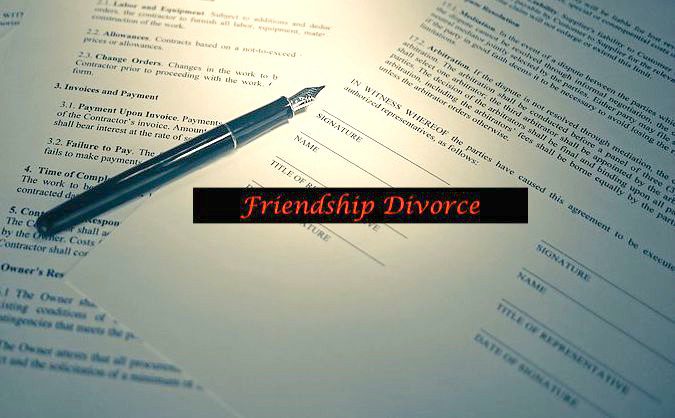by Alexis Hart
I open my mouth and then close it again. I forget I wasn’t allowed to talk about that subject. In the moments between thought and the spoken word, I remember that conversations revolving around my opinions and personal problems are considered ‘selfish on my part.’
Everything about me is silenced or downgraded in comparison to the issues of my friend. After I ignored all of the warning signs and words of caution from outsiders, I slowly came to terms with the fact that my friend was completely toxic.
According to a survey hosted by the Today talk show, “84 percent of women—and 75 percent of men said they’d had a toxic friend at some point.” Before thoughtlessly tumbling into this astonishing statistic, it’s important to first identify the stability of the friendship. In order to determine if a friendship is salvageable or if it’s unhealthy, it’s important to be honest with yourself and be wary of warning signs. If you determine the relationship is unhealthy, the following methods can help the abused party find healthy and feasible ways to grow and enhance their college experience after a divorce with a close friend.
During trying times in a friendship, it’s hard to determine if the friendship is worth all of the stress and drama. A redeemable friendship can be categorized as a relationship with rifts that can be repaired over time, through personal space, and by voicing opinions. The factors that can cause a rift in friendships can be both internal and external factors such as stress, family death, or poor communication among friends. When issues come forth, all members of the friendship must forgive and forget, or simply talk about the issue in order to solve the problem. In my experience, these friendship rifts are short and have viable solutions; most of these issues stem from miscommunication.
On the other hand, in a harmful relationship, those friends need to simply disentangle themselves from each other. At first it might seem easier to simply salvage an unhealthy relationship but in the end the friendship will cause more harm than good. According to Heidi Hoff, a writer for Canada’s Natural Health and Wellness Magazine, there’s a list of traits to look for in a toxic friendship- that include being self-absorbed, lacking interest or time investments with friends, being judgmental and critical of others, causing dread prior to hanging out, and responding negatively to friends’ accomplishments.
When I was trapped in my toxic friendship, my friend would constantly talk about their job, but they would repeatedly tell me that they didn’t want to hear any complaints from my professional life. I was constantly questioning what was appropriate to discuss and what would make my friend happy. Similarly, it felt like I was the only one that cared about sustaining the relationship. I would be the only one to reach out and try to find time for us to be together. The only time that my friend would reach out would be when I was going to meet with someone else. They didn’t like the fact that I was not solely in their orbit and pleaded with me using lines like: this is the only time we can hang out, or don’t you like being with me, or it will only be a few minutes, I promise.
During this time, I made sacrifices to my social life in order to please my friend. In the end I pushed everyone from my social circle away because of my friend’s persuasion. Looking back now, I don’t know why I made such a sacrifice. If any or all of these traits seem overly familiar, then it might be time to end the friendship.
Calling an end to a friendship isn’t straight forward; the leaving party needs to completely re-hardwire their normal routine. One of the main obstacles that the exiting party faces is fear. People are scared to escape harmful relationships because at one time the person was their friend, they’re afraid that they’ll be segregated and they’re unsure of the next step. The other obstacle is denial. Many people in these harmful relationships are constantly making excuses for the other person, or actively ignore the warning signs. As an extrovert, I flourish the more time I spend with people. However, as an impending appointment with my friend drew nearer I would be consumed by the feeling of dread. I would constantly scroll through my list of ‘polite excuses’ to find some reason to skip out on our meetings. On the other hand, the part of me that was in denial silently tried to boost my own morale by hoping ‘maybe this time will be different. Last time my friend was just in a mood.’
However, those moods never change. One day the abuse, neglect, and emotional turmoil will be too much, and the relationship will splinter. When this happens, the abused party will likely feel lost about what steps to take. The cause of this problem stems from the fact that their toxic friend has isolated them from other social groups. This can further impact how the departing party copes with the stress and hollow feeling that results from the falling out.
When people are alone and suffering, they might think to turn to the Internet for advice.
According to Dr. Jill P. Weber who posted on Psychologytoday.com, the four ways to get over an unhealthy relationship are: Admit that the relationship is toxic, stop believing that this relationship is the best you can do, detox, purse self-growth.
To the depressed, heartbroken, or annoyed these steps seem almost impossible to follow. Not because they’re hard, but because everything seems fruitless. How can I let another person get close to me? What if this new person is hurtful as well?
As someone who has personally suffered through a toxic friendship, I know that ‘getting back on your feet’ is the hardest part. Luckily, at the University of Central Florida there are many ways to disentangle from the depressed and stressed mindset. When making the decision to leave a poisonous relationship, the exiting party can become completely alienated, unable to trust others, and resentful to return to previous clubs or social events that they shared with their aggressor. However, UCF is such a large university with hundreds of clubs that can help victims get back on their feet.
One resource that students can turn to is the organization Knights of the Round Table, KoRT, which is an organization of student consultants who help people find the perfect club or organization to get involved in. When I asked Luna Ramirez, a Knight Quest Consultant, about KoRT’s process for helping students that don’t wish to return to their original club due to a toxic relationship she commented, “We look for interests…We’d first find out their major because people are more likely to be invested in clubs that help you professionally…There are many organizations on campus that do the same thing, but they have different people.”
This is the perfect recipe for overcoming the obstacles of isolation and fear. After being invested in a new club or organization, the abused friend can start finding purpose through club activities and new friendships. Below are some of my personal tips for overcoming a Friendship Divorce.
Another resource that students can use is their department’s academic advisors. These advisors can help students discover new class opportunities within their respective major, minor, or certificate. As for me, after the splintering of my relationship with a toxic friend, all I wanted was to be alone. I went to my advisor and sought solitude in a solo internship, but my advisor suggested that I invested my time in a different pursuit.
Every conversation, every memory was plagued by instances with my unhealthy friendship. The last thing I wanted was to see them again, but distance is challenging when the friendship bloomed within the same major. And just as Luna said, I became invested in the class that my advisor recommended. Not because it was required for my major, but because the subject turned out to be something that invested in my future profession. This class not only helped me professionally, but emotionally. I’ve made new friends and now have a more positive outlook on my situation.
Once a toxic friendship ends and the healing begins, it’s normal to feel a surge of mismatched emotions. People can feel upset for allowing the hurtful relationship to transpire for so long. While on the other hand, they may feel angry because of all of the wasted time. As for me, I lost motivation. I didn’t want to participate in anything or do anything that required me to get out of my bed. And although it might seem impossible, the person looking to start over needs to make new friends to understand that all people are not the same. They should try making connections with people based off different interests. For example, if the harmful relationship started based off a favorite television show, then next time they should find friends that like another one of their passions like art.
Recovery can be a challenge, but one day, the hollow feeling will be filled, and the fake smile will be replaced by a real one. Now, I’m not afraid to open my mouth and speak my mind or talk about certain subjects. Toxic friendships can shatter a person, but this doesn’t mean that they’re unmendable. It just means that they’re looking for the right friends to pick up the pieces and make them whole again.





